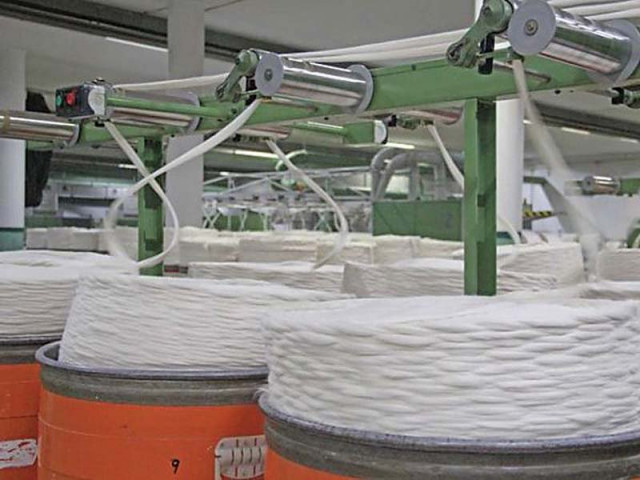Reduce dependence on textile sector, EU says
Ambassador to Pakistan urges business community to focus on value addition

Pakistan is a predominantly textile exporting country and any fluctuation in its demand leads to massive decline in foreign exchange receipts. PHOTOS: AYESHA MIR/EXPRESS
European Union (EU) Ambassador to Pakistan Jean Francois Cautain has emphasised on breaking away from past trade stereotypes and explore opportunities in other sectors besides textile and leather, in a bid to take advantage of the GSP Plus scheme.
With effect from January 2014, Pakistan gained duty-free access to the EU on certain products. Many saw it as an opportunity for the country to increase exports to the EU, but two years later, revenue receipts have barely crawled up. Analysts have blamed various factors behind the sub-par performance, including the economic slowdown in Europe, low quality of exports and overdependence on textile.
Textile industry: Govt must address causes of falling exports, says Bilwani

Cautain on Friday echoed a similar view and said the country needed to look beyond textile and leather products.
“Pakistani government and the business community should look beyond the textile and leather sectors, invest in other areas to improve the export scenario to EU,” Cautain said while talking to The Express Tribune.
With eight more years to go under the GSP Plus status, it is high time Pakistan develops its value added sectors, said the EU envoy.
“This can be done in shape of joint-ventures between the government and the local business community; where they can look for potential sectors and make investments in infrastructure development,” he added.
Textile products: Govt to probe fall in exports despite offering incentives
During 2014-15, textile exports registered a decline of $1.21 billion in value. Furthermore, in the first five months of 2015-16, exports slid by another $1.37 billion.
This drop has raised questions over Pakistan’s ability to take advantage of the status.
“There is no doubt that consumer spending in Europe is not at an all-time high, mainly due to the on-going crisis in the eurozone; and this has also affected Pakistani exports,” Cautain said.
In 2014, global exports to the EU increased by 20%, but Pakistan’s share remained stagnant. A similar pattern has occurred in 2015.
“Currency fluctuations play some part and we were unable to achieve what we had hoped,” he said.
“But it is not the instrument to blame; there are other factors too, which we have to work on together for increased trade. But some issues are out of our control and these have to be tackled by the Pakistani government.”
Cautain added that Pakistan’s energy crisis was a huge impediment in the way of the country’s textile growth. “Government should ensure this is resolved swiftly.”
Venting out: Textile exporters foresee fresh fall in exports
The ambassador further said that the EU was in the process of releasing its first post-GSP plus review report. The report will look at Pakistan’s performance in terms of implementing the 27 EU conventions, he said.
“Some positive steps like establishing the National Commission for Human Rights has been taken by the government but the continued benefit of GSP Plus status depends on the country’s compliance to international conventions,” said Cautain, adding that he was not at liberty to discuss the topic further.
Published in The Express Tribune, January 30th, 2016.
Like Business on Facebook, follow @TribuneBiz on Twitter to stay informed and join in the conversation.



















COMMENTS
Comments are moderated and generally will be posted if they are on-topic and not abusive.
For more information, please see our Comments FAQ